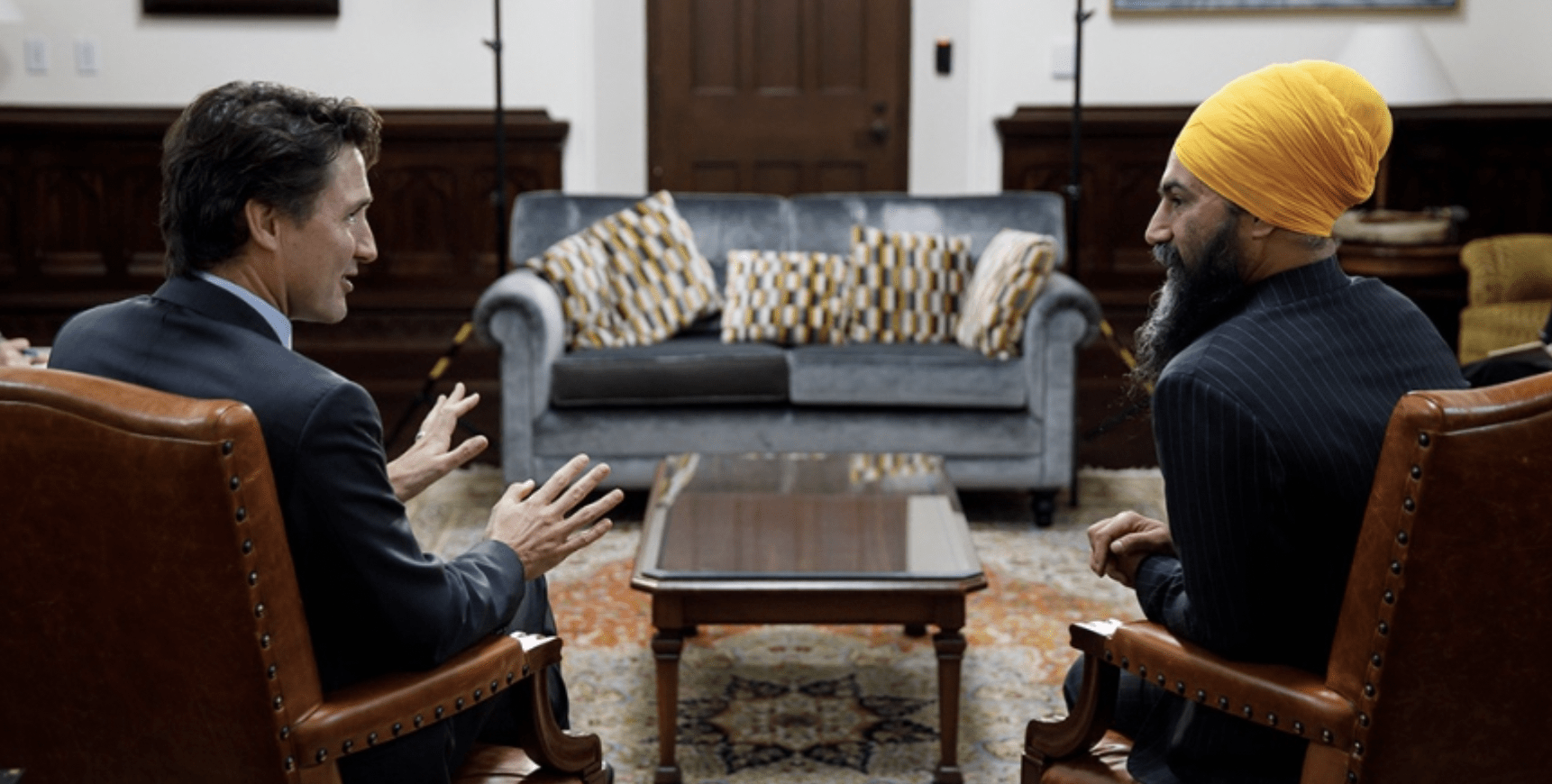The Price of Progress: The NDP and the 2024 Budget
 Adam Scotti
Adam Scotti
By Brian Topp
April 16, 2024
Every federal party official and leader in the history of the Cooperative Commonwealth Federation (CCF)-New Democratic Party (NDP) for almost 100 years has been familiar with a letter sent to Prime Minister Mackenzie King in January, 1926.
In that 1926 letter, J.S. Woodsworth, who went on to become founding leader of the CCF, and his fellow Labour MP Abraham Heaps, demand action on social programs in return for supporting King in a minority Parliament:
Dear Mr. King:
As representatives of Labour in the House of Commons, may we ask whether it is your intention to introduce at this session legislation with regard to (a) Provision for the unemployed; (b) Old Age Pensions. We are venturing to send a similar inquiry to the leader of the opposition.
Yours sincerely,
J.S. Woodsworth
A.A Heaps
The Old Age Pensions Act was passed in 1927.
In the century since, most of the key landmarks of social progress in Canada were achieved just that way.
That’s why, when the federal NDP has a balance-of-power position in a Canadian Parliament, you can be fairly sure that two things will happen.
First, the NDP will reach out to the government and see if there is any appetite to trade progress for support.
And second, they will then stoically endure the inevitable criticism from parties not in the agreement, because it is the price the party pays for progress.
And so it is with this federal budget.
New Democrats, broadly speaking, think three things about it.
They’re happy to see that some of their policy priorities are getting implemented. This generation of New Democrats are proud of the public dental and pharmacare plans they held out for and are pleased to see them contemplated in this budget. “We forced Justin Trudeau to build more homes and protect renters, to make birth control and diabetes medication free and to help feed hungry kids at school,” the party said in its budget statement.
Neither the Liberals nor the New Democrats want a federal election in the spring of 2024, when events — including the sheer time this government has been in office — are threatening a Tory sweep of their ridings.
Concurrently, they’re broadly critical of liberal government in principle and practice, for (in their view) gesturing at problems without really fixing them. The New Democrats pressed hard on populist themes such as the need for an “excess profits tax”, for example.
But they’ll still vote for the budget. Because many in the NDP have labour backgrounds, and a deal’s a deal. And because some sort of progress is being made.
Making progress, after all, is their job.
Finally: There are indeed political and electoral calculations underlying what political parties do in minority parliaments.
Neither the Liberals nor the New Democrats want a federal election in the spring of 2024, when events — including the sheer time this government has been in office — are threatening a Tory sweep of their ridings.
New Democrats recently said farewell to former NDP leader Ed Broadbent. At a state funeral generously offered and attended by Prime Minister Justin Trudeau, they came together to remember Broadbent’s remarkable career — including the fact that in 1986 and 1987, Broadbent led federal polls and seemed set to be Prime minister of Canada himself — with numbers essentially identical to the ones presently enjoyed by Mr. Poilievre. Time and events sometimes cure such leads.
A final point: if the New Democrats and the Liberals were to trade places in credible opinion polls, and the NDP believed it had a serious chance of emerging from an early election ahead of their accord partner in votes and seats, they might look at their cards again.
But first, barring surprising developments, this budget will get passed.
Brian Topp is a partner at GT & Company. He is chair of the board of the Broadbent Institute; teaches a course at McGill’s Max Bell School of Public Policy, served as chief of staff to former Alberta Premier Rachel Notley, as deputy chief of staff to Saskatchewan Premier Roy Romanow and as national campaign director to federal NDP leader Jack Layton.
